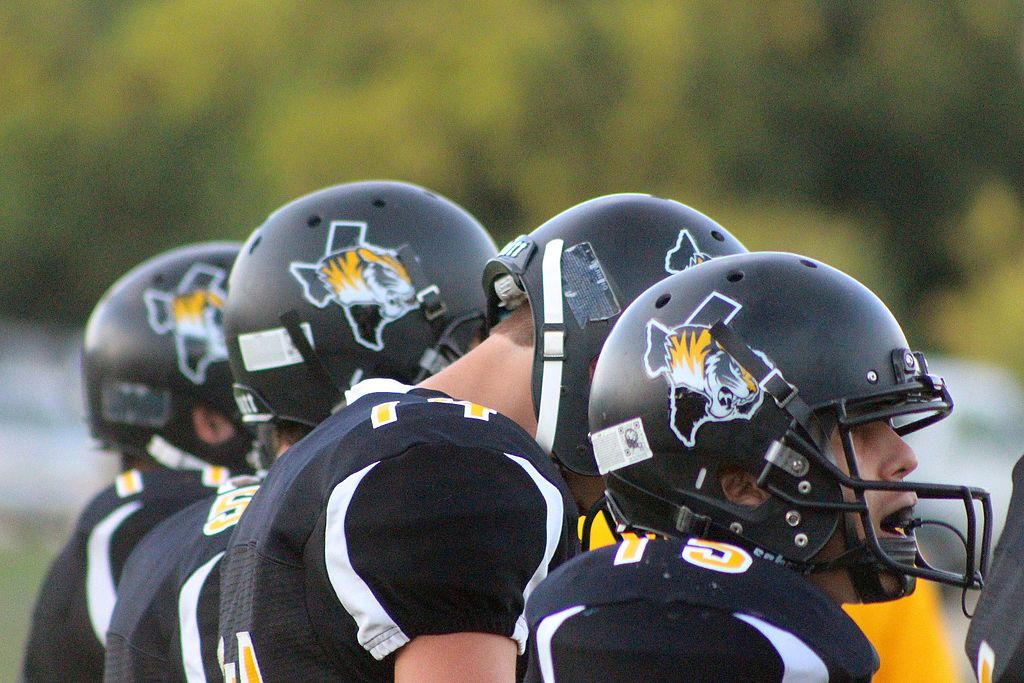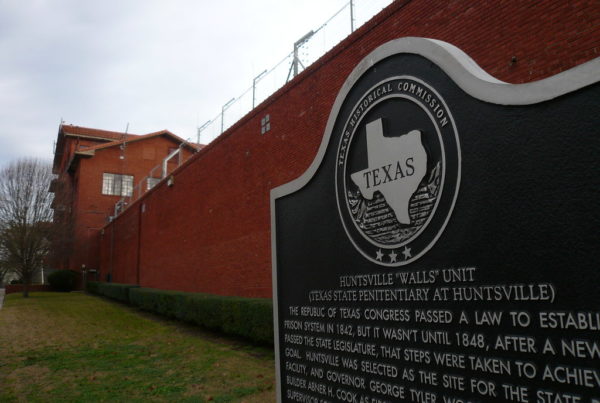Every two years, the University Interscholastic League – better known as the UIL – realigns the state’s public schools for extracurricular competitions. Big schools play other big schools, little schools play other little schools. Realignment aims to keep that balance as schools lose or gain students.
When the UIL released its realignment numbers for the 2020 through 2022 school years earlier this week, some schools were watching closer than others. Realignment dictates much of a school’s athletic future – which teams they’ll play, how far they’ll have to travel for games, and – in the case of some small schools – what sport they’ll play.
If a school is grouped into 2A – the second smallest division – they’re eligible to play 11-man football. But if they drop into 1A – the smallest group of schools – they play six-man, or obtain a waiver to play 11-man with bigger schools.
If you’re unfamiliar with six-man football, you’re not the only one. Israel DeLeon doesn’t know much about it either.
“I have zero six-man experience,” DeLeon says. “Never coached it, never played it. And the honest truth is I’ve never watched a six-man football game.”
The difference is that now, DeLeon is in charge of a six-man football program. He’s the head coach at Springlake-Earth High School, a Panhandle school of about 90 students. The school has always played 11-man football, but over the past few years, as its population dwindled, DeLeon’s had fewer and fewer players for the football team. Eventually, it became clear that Springlake-Earth just wouldn’t have enough players to field an 11-man team.
“It’s a small community, and it’s just not growing. It’s not something we wanted to do, just something we had to do,” DeLeon says.
The numbers the UIL released earlier this week confirmed that. The school fell below the 11-man threshold.
Of the 1,200 or so high schools in Texas that play football, only about 150 play six-man. Six-man football obviously requires fewer players, but it’s also faster than its traditional cousin. It’s described as basketball on grass – the field is a bit smaller, but there are fewer blockers, more space, more laterals, more opportunities for chaos. DeLeon’s already found that the learning curve is steep.
“It’s going to be hard for me,” he says. “I’ve watched, golly, hours and hours of six-man games, just trying to find offensive concepts that kind of correlate to what we do and what we kind of hang our hat on.”
But this is the situation that a handful of schools find themselves in every few years when the UIL redivides its schools. And it goes both ways – sometimes schools move up to 11-man, too.
On the Bolivar Peninsula, 35 miles northeast of Galveston, High Island High School used to play 11-man. But in 2008, Hurricane Ike hit. Students left, and the school opted to play six-man. But that presented its own problems.
The closest six-man schools to High Island are up to five hours away, so the team often plays away games on Saturdays – an all-day affair.
“Usually we leave here about 7:30, 8 in the morning, and get home around midnight,” says Matt Miracle, the school’s head football coach.
Travel and the expense that comes with it is a huge concern for schools. Alexis Cubit, a high school sports reporter for the Lubbock Avalanche-Journal, says that schools in her area were in the same division as some El Paso schools, requiring overnight trips for a single football game.
“The fact of the matter is, Texas is a huge state. And so when you look at ‘how can we make this as convenient as possible for all parties involved?’, it can be a real challenge,” Cubit says. “I do not envy the UIL at all, trying to figure all this out. At the end of the day, not everyone’s going to be happy with it.”
Even though the competition may be stiffer in 11-man football, playing it would improve travel time and expenses for High Island. So Miracle applied for a waiver to return to it.
“Whatever we do, whatever decision is ultimately reached, we want to do what’s best for the kids,” Miracle says.
It’s the kind of choice that small schools have to face though. It’s not an easy one, either. At Springlake-Earth, DeLeon said that some people in the community looked down their noses at six-man. But now that they’re there, he says, they might as well try to win.















